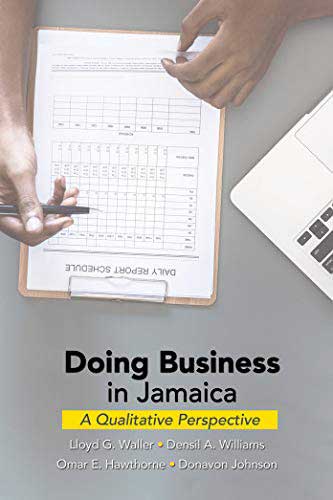Description
In recent years, Jamaica has made steady progress in reducing its debt-to-GDP ratio even as growth continues to be inhibited by high crime and corruption, and bureaucracy. As a small island developing state, the country is susceptible to natural disasters and vulnerable to external shocks. And yet, in 2018, established international ratings agencies revised the country’s economic outlook from stable to positive; and the Jamaican economy ranked 5th in the world for starting a business. Why then is Jamaica positioned only at 70 in the World Bank’s annual Doing Business report (DBR); an improvement from its rank at No. 76 in 2017, although, not a recovery to its ranking of No. 65 in 2016?
The authors of Doing Business in Jamaica: A Qualitative Perspective posit that the influential DBR – a critical decision-making tool for foreign firms contemplating and reviewing investment in a country – is flawed in its purely quantitative approach. The complex and diverse realities of a developing country such as Jamaica cannot be adequately reflected in a single approach. Instead, analysing the responses of 75 business owners, operators, and managers in Jamaica including business process outsourcing (BPO) firms, business trade firms, management consultancy firms, financial consultancy firms, merchandise-retail companies as well as various small and medium-sized businesses from a wide cross section of industries, they offer a more holistic picture and comprehensive understanding of Jamaica’s economic environment.
Using the same units of analysis as the DBR: starting a business, dealing with construction permits, getting electricity, registering property, obtaining credit, protecting minority investors, paying taxes, trading across borders, enforcing contracts, and resolving insolvency; the results and conclusions of Doing Business in Jamaica illustrate that a one-size-fits-all approach can lead to a misinterpretation of a country’s economic environment and an unfairly low ranking.
Easy to read and accessible to the investor, politician, policymaker, student, and scholar alike, Doing Business in Jamaica provides an alternative to understanding doing business in Jamaica.








